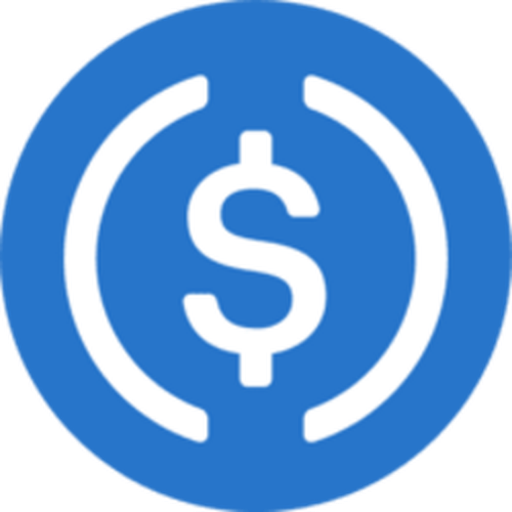USDC vs Internet Computer – Price, Market Cap & Performance Compared
Which coin performs better – USDC or Internet Computer?
We compare the current price (0.99971 $ vs 4.31 $), market cap (74 153 765 385 vs 2 317 945 112) and all-time high (1.17 vs 700.65).
Find out which one stands out right now!
USDC is currently trading at 0.99971 $, while Internet Computer stands at 4.31 $. These cryptocurrencies differ not only in price but also in market presence.
The market cap of USDC is around 74 153 765 385, and Internet Computer has about 2 317 945 112. Their respective all-time highs are 1.17 for USDC and 700.65 for Internet Computer.
Daily trading volume and the 24h price change (-0.00009 % vs -0.50652 %) also offer key insights.
Compare all metrics now and see which coin fits your investment strategy best!
USDC
USD Coin (USDC) is a stablecoin that is pegged to the US dollar, offering a consistent value and reducing the volatility often associated with cryptocurrencies. It provides a crucial bridge between traditional financial systems and digital currency markets, facilitating easy and secure transactions. USDC's foundation on blockchain technology ensures transparency and enhances trust among users and institutions.
more informationInternet Computer
Internet Computer aims to revolutionize the internet by extending its functionality to become a global, decentralized computing platform. It empowers developers to create applications and services directly on the public internet without relying on traditional IT infrastructures. This unique approach has the potential to open new possibilities for decentralized applications and reshape the dynamics of how digital services are built and deployed.
more information

|

|
|
|
|
General Information |
|
|---|---|
|
Title
USDC
|
Title
Internet Computer
|
|
Symbol
usdc
|
Symbol
icp
|
|
Whitepaper
-
|
Whitepaper
|
|
Website
|
Website
|
|
Community
-
|
Community
|
|
Last Updated
2025-09-24 23:29
|
Last Updated
2025-09-24 23:29
|
Price Data |
|
|---|---|
|
Current Price $
0.99971 $
|
Current Price $
4.31 $
|
|
High 24h
0.99972 $
|
High 24h
4.41 $
|
|
Low 24h
0.99960 $
|
Low 24h
4.28 $
|
|
Price Change 24h
0.00000 $
|
Price Change 24h
-0.02192 $
|
|
Price Change % 24h
-0.00009 %
|
Price Change % 24h
-0.50652 %
|
Market Data |
|
|---|---|
|
Market Cap
74 153 765 385
|
Market Cap
2 317 945 112
|
|
Total Volume
10 559 655 699
|
Total Volume
56 968 845
|
|
Market Cap Change 24h
159 815 467
|
Market Cap Change 24h
-9 699 304
|
|
Market Cap Change % 24h
0.21598 %
|
Market Cap Change % 24h
-0.41670 %
|
|
Return on Investment (ROI)
-
|
Return on Investment (ROI)
-
|
Supply and Availability |
|
|---|---|
|
Circulating Supply
74 175 659 818
|
Circulating Supply
538 154 178
|
|
Total Supply
74 172 355 958
|
Total Supply
538 154 178
|
|
Max Supply
-
|
Max Supply
-
|
Historical Data |
|
|---|---|
|
All Time High (ATH)
1.17
|
All Time High (ATH)
700.65
|
|
ATH Change %
-14.75232 %
|
ATH Change %
-99.38505 %
|
|
ATH Date
2019-05-08 00:40
|
ATH Date
2021-05-10 16:05
|
|
All Time Low (ATL)
0.87765
|
All Time Low (ATL)
2.87
|
|
ATL Change %
13.90744 %
|
ATL Change %
50.38766 %
|
|
ATL Date
2023-03-11 08:02
|
ATL Date
2023-09-22 00:29
|
USDC
Understanding USDC: A Stablecoin in the Volatile Crypto World
USDC, or USD Coin, is a prominent stablecoin in the cryptocurrency market. Issued by Circle and backed by fully reserved assets, USDC is designed to maintain a 1:1 value ratio with the US Dollar, making it a reliable digital dollar. The stablecoin ecosystem plays a crucial role in the broader cryptocurrency industry by providing a less volatile alternative to traditional cryptocurrencies like Bitcoin and Ethereum.
The Evolution of USDC
Launched in 2018, USDC was developed as part of a collaboration between Circle and Coinbase, two major forces in the cryptocurrency space. Since its inception, USDC has seen significant growth and adoption, becoming one of the leading stablecoins alongside Tether (USDT) and Binance USD (BUSD). While its all-time high reached $1.17 in May 2019, this was more of an anomalous spike that reinforced the need for rigorous controls to maintain stability around its intended $1 peg.
Pros of Using USDC
One of the primary advantages of USDC is its transparency and regulatory compliance. Circle, the company behind USDC, undergoes regular audits and publishes monthly attestations of its reserves, ensuring users that each USDC token is truly backed by a dollar or dollar-equivalent asset held in reserve. This transparency fosters trust and helps mitigate the volatility that plagues much of the crypto market.
Furthermore, USDC serves as a bridge between traditional finance and the blockchain world. It's used widely in Defi applications, allowing decentralized lending, borrowing, and trading while maintaining value stability. Additionally, USDC's integration into various wallets and exchanges worldwide adds to its utility and liquidity.
Cons of USDC
Despite its advantages, USDC is not without its drawbacks. One of the critical concerns involves regulatory risks, as stricter regulations on stablecoins could impact its future operations. Also, as a centralized stablecoin, USDC is subject to censorship concerns, where accounts can be frozen, diverging from the decentralized ethos that underlies most cryptocurrencies.
Another drawback is that, unlike decentralized alternatives, USDC requires a level of trust in the issuer, Circle. Any potential mismanagement or economic instability affecting Circle could, in theory, impact its ability to maintain the 1:1 peg, a risk inherent to any centralized stablecoin.
Past Performance and Market Impact
USDC has generally maintained its peg effectively, with minor fluctuations typically remaining within a tight range around $1. Its stability has been pivotal during periods of crypto market volatility, where it serves as a safe haven for investors looking to escape market downturns without exiting the crypto ecosystem.
In terms of market cap, USDC has experienced exponential growth, driven by increased adoption in the decentralized finance (Defi) space and demand for stable trading pairs. Despite being eclipsed by Tether (USDT) in terms of market share, USDC's reputation for transparency gives it a competitive edge.
Future Outlook for USDC
Looking ahead, USDC's future appears promising but laden with challenges. The growing scrutiny from regulators worldwide could result in regulatory changes impacting its operations. However, Circle's proactive approach to compliance and regulation may shield USDC from adverse outcomes.
The stablecoin's role in facilitating seamless transactions and enabling innovative financial products in the Defi space will likely continue to drive its utility and adoption. Moreover, as traditional financial institutions begin to explore blockchain technology, USDC could play a critical role in bridging the two worlds.
In summary, USDC's stability, transparency, and integration with both traditional and decentralized finance systems position it as a key player in the ongoing evolution of digital finance. However, navigating regulatory landscapes and maintaining trust will be crucial for its sustained success.
Internet Computer
Exploring the Potential of Internet Computer (ICP)
The crypto world is vast and ever-changing, with new developments constantly reshaping the landscape. Among the myriad of digital assets is Internet Computer (ICP), a coin that aims to redefine how the internet functions. Let's delve into the details of ICP, evaluate its past performance, and explore its future prospects.
What is Internet Computer?
Launched by the DFINITY Foundation, Internet Computer is a blockchain-based network designed to expand the functionality of the internet. With a vision to create a decentralized global computer, it aims to allow developers to build secure, scalable, and efficient applications without relying on traditional cloud services.
The project intends to shift the internet from a traditional server-based architecture to a decentralized one, aiming to empower developers and users alike while reducing costs and enhancing security.
Advantages of Internet Computer
One of the primary advantages of Internet Computer is its ambitious scope. The project seeks to provide a decentralized alternative to the centralized giants of the tech world, promising enhanced security and control for end-users. Additionally, it provides an innovative framework for developers to create dApps (decentralized applications) that can operate at web speed with reduced operational costs.
Furthermore, the potential for reduced latency and increased scalability on the ICP network positions it as a unique offering in the crypto space, addressing common challenges faced by existing blockchain projects.
Challenges Faced by Internet Computer
Despite its benefits, Internet Computer faces several challenges. One of the major hurdles is its competition with well-established blockchain platforms like Ethereum, which already have a strong developer community and network effects. Convincing developers to migrate or build on ICP requires significant value propositions and seamless integration processes.
Moreover, the technical complexity and ambitious nature of the project might deter some potential users and developers, as it requires an understanding of new concepts and architectures.
Historical Performance of ICP
Internet Computer made headlines during its launch with an all-time high (ATH) of $700.65 in May 2021. However, like many cryptocurrencies, it has experienced significant volatility since then. The coin reached an all-time low (ATL) of $2.87 in September 2023. This drastic change highlights the challenges of maintaining value and stability in a fluctuating market.
As of October 2024, the price of ICP stands at $8.17, indicating a modest recovery from its ATL. These fluctuations suggest that while ICP has an intriguing potential, it remains subject to the volatile nature of the cryptocurrency market.
Future Outlook for Internet Computer
Looking ahead, the future prospects for ICP depend on its ability to continue innovating and attracting developers to its ecosystem. Partnerships, technological advancements, and community engagement will be crucial factors in determining its success.
The ongoing evolution of blockchain technology and increasing demand for decentralized solutions offer a promising backdrop for Internet Computer's growth. However, overcoming competition and demonstrating real-world use cases will be key to solidifying its position in the market.
In summary, Internet Computer holds an ambitious vision with the potential to influence the future of web development and blockchain integration. While it faces challenges and competitive pressures, its unique approach to decentralization and scalability sets it apart as a noteworthy project in the crypto space.

